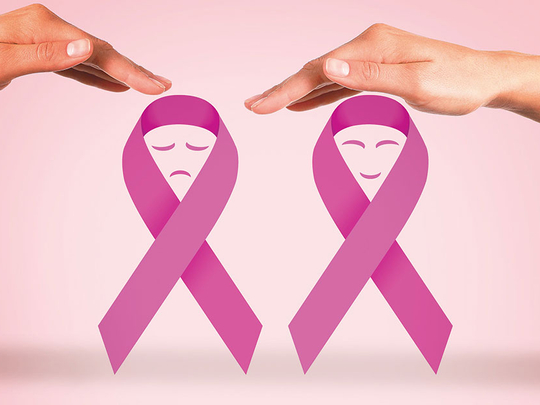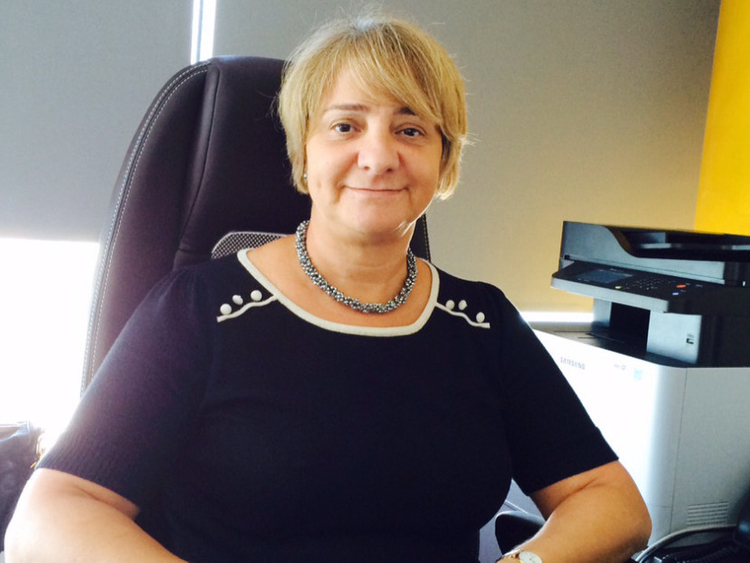
DUBAI When Dubai-based Brigitte Chemla was first diagnosed with breast cancer, the shocker was compounded by an equally chilling discovery: the hospital she was visiting told her she would have to wait until they got an approval from her insurance company for her treatment. It turned out that the local policy she had was inadequate to meet her mammoth requirement. But her then employer got her a new policy from her home-country France that saw her through her two-year treatment.
Not all breast cancer patients and survivors are as lucky though. Chemla, now a board member of the support group Brest Friends and CEO of health insurance administrator Whealth Management, lets on that many are left to fend for themselves either because they have no insurance or are underinsured.
Big challenge
While the complete roll-out of mandatory health insurance by Dubai Health Authority (DHA) by next July will take care of the first part, insufficient covers for breast cancer remain a big challenge.
“Just because you have a health insurance card doesn’t mean you are safe,” said Chemla, noting that a Stage 4 breast cancer patient can be set back by Dh1 million over two years to cover the cost of diagnostic tests, mastectomy, eight cycles of chemotherapy, a year of Herceptin and breast reconstruction at a top private hospital.
But with basic insurance packages carrying an annual limit of Dh150,000, many insured patients are in for a rude shock when cancer strikes.
Alison Fenech, head of general Insurance at Nexus Insurance Brokers, said: “The limits for health screens (as a preventative measure not recommended by a doctor) which includes consultation, diagnostic procedures and assessments is between Dh1,000 and Dh3,000 depending on the policy and provider.”
She said: “The cost per chemotherapy per session can vary but on an average it is about Dh3,000. Typically this will be covered up to the policy limit for all operations, post-care, consultations etc if the condition developed during the policy. For policies which have low limits - Dh100,000 or Dh250,000 - it can be a problem as clients don’t have the money to pay for comprehensive covers so will quickly use up their limit. Upon renewal, their premium will increase dramatically to an unaffordable level because the insurance company will consider them to be at higher risk.”
Much of the debate hinges on whether the cancer pre-existed. “If the condition developed before the policy and was declared as a ‘pre-existing condition’, the minimum level determined by DHA is Dh150,000 which may be quickly utilised depending on the treatment. Some insurers have a six month waiting periodfor pre-existing conditions,” said Fenech.
“Cancer can exist in the body before a person becomes aware of any symptoms. One issue we have faced is that a person will take a policy with a “clean” application, no conditions are mentioned, then months later will be diagnosed with cancer. The insurance company could say the cancer existed in the body at the time of policy inception and was not declared so therefore was not coverable. Pre-existing applies when the condition clinically manifested itself rather than when the person first became aware of it. In such a case the person would be left to fund the treatment,” added Fenech.
She said when insurance becomes compulsory, “people with conditions before a policy is taken or at renewal will find their premiums increasing to a potentially unaffordable level”.
So what is the solution? Chemla said the key is to take an additional policy in one’s home country. “There’s little you can do with a low limit local group policy provided to you by your employer. But you must understand what the policy covers.”
Chemla said it is imperative people save their local policies for emergencies and bigger situations, not trivial doctor visits.
Sanjay Tolani, managing director of Goodwill Insurance Brokers, said: “You also have the option to buy an additional insurance to replace income in case of an illness such as breast cancer. It is called Income Protection due to Illness.”
YOUSPEAK: What has your experience been with cancer coverage?












